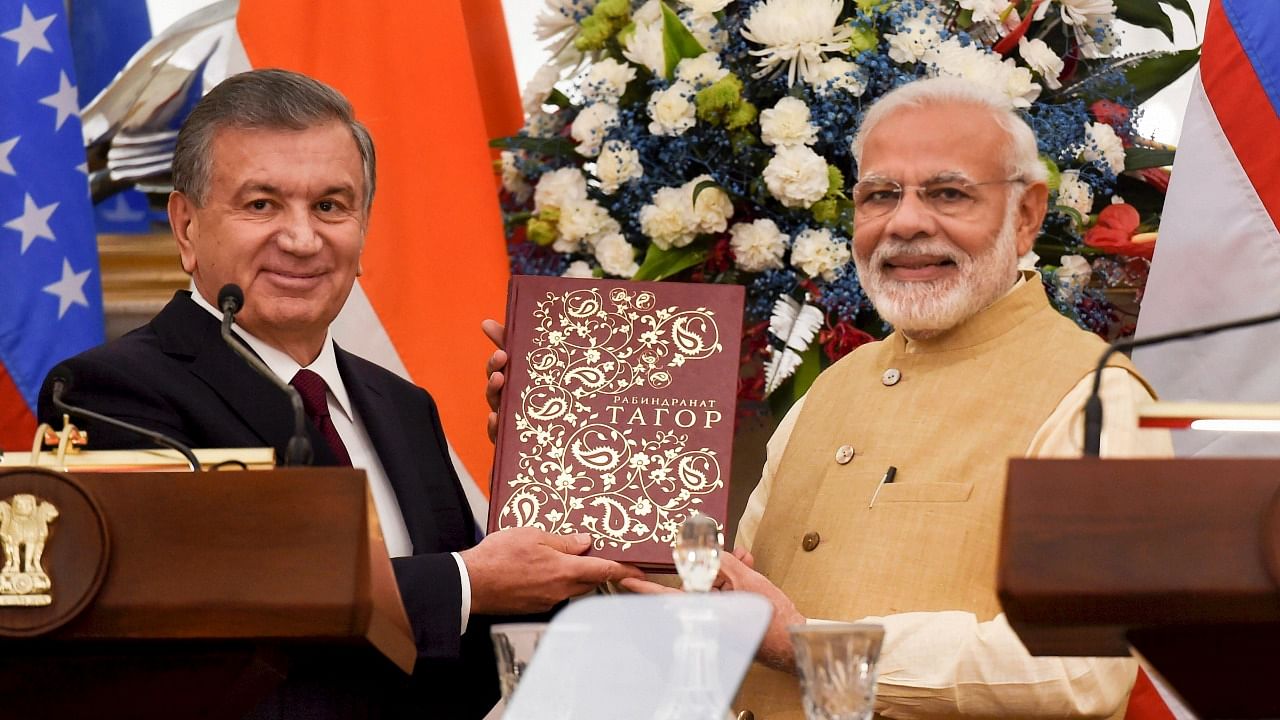
Uzbekistan has voted in favour of a renewed constitution. More than 90 per cent of the 85 per cent voters who turned out for the April 30 referendum, said yes to a draft constitution which revises 65 per cent of the basic law. Election observers from the OSCE (Organisation for Security and Cooperation in Europe), criticised the referendum as not truly representative. The result paved the way for strongman President Shavkat Mirziyoyev to remain in power till 2040. (He has called for snap polls in the country to leverage this new law.)
A protégé of the autocratic Islam Karimov who ruled for more than 25 years, Mirziyoyev has announced a welfare agenda with women empowerment and human rights at its heart. That said, he is not without his controlling streaks. Dissidents have been jailed during his term. There were protests and riots in July killing 18 people as he proposed to scrap the right to self-determination of the autonomous Karakalpakstan region. He eventually backed down.
Many believe in his vision of a new Uzbekistan. On the streets of Tashkent there is an appreciation for rapid infrastructure progress and gradual liberalisation of the economy since Mirziyoyev took over in 2016, following Karimov’s death. Scars of a closed economy with deep fear of spending lest the State targets citizens is still fresh for young entrepreneurs.
New Foreign Policy
Significantly peaceful foreign relations with the world community, primarily with neighbouring states, is a highlight of Uzbekistan's new constitution.
After gaining independence in 1991, for nearly three decades a prickly Uzbekistan saw frequent border strife with its post-Soviet neighbours in Central Asia. Now the new constitution states ‘Uzbekistan is based on the principles of sovereign equality of force, inviolability of frontiers, territorial integrity of states, peaceful settlement of disputes’.
Juraev Sayfiddin Ahmatovich, Professor of International Relations at the Tashkent University of Oriental Studies, says there is much to learn from India’s balancing act with competing powers. He argues under Mirziyoyev, Uzbekistan is also taking steps towards strategic autonomy and solving border disputes.
Opportunities For India
India can further its ties with Uzbekistan to leverage its influence on the landlocked region. Since elevation of the partnership to a strategic level in 2011 under Karimov, there have been important shifts in ties. Narendra Modi was the first Indian Prime Minister to visit all five Central Asian countries in 2015, and hosted a first India-Central Asia visual summit last year. But there is much to be desired specially given China’s deep investments in the region. President Xi Jinping will be hosting the first meeting of all Central Asia leaders in Xian next week. Mirziyoyev wants to take relations with India forward and there is ground for convergence given secular politics the country practices and influence it holds over the region’s foreign policy.
India and Uzbekistan also share a common interest in preventing the Taliban ideology from spreading in the region. Uzbekistan trades with Afghanistan and supports the education of young Afghans in the border town of Termez. United Nations humanitarian assistance for Afghans passes through Termez. Uzbekistan is an important voice as the global community struggles to seek inclusivity and protection of rights of minorities, children, girls, and women under a Taliban-ruled Afghanistan, and prevent use of Afghan soil for terror attacks.
According to Indian officials, Uzbekistan has accommodated more than 3,000 Indian medical students displaced from Ukrainian universities after the Russian invasion. There is scope for greater collaborations with Indian higher educational institutes given that more than 70 percent of Uzbekistan’s population is below the age of 30. Three private Indian universities have currently forayed into Uzbekistan.
Indian pharmaceutical industry, rocked by deaths of Uzbek children late last year allegedly caused after consuming medicine manufactured in India, is still the strongest trade component. But dismal direct air connectivity is a hurdle for visitors, including medical tourists.
IT Parks set up by Indians, Indian mobile phones, fruits, and frozen buffalo meat coming through the Bandar Abbas port in Iran are new entrants to the Uzbek market. But there is serious lack of road and rail connectivity between Iranian ports and Uzbekistan and other Central Asian countries.
Indian films and music are the biggest people-to-people connect. Hindi film actors, songs, and dance sequences are popular among Uzbeks, though Bollywood has given the country a miss when it comes to filming projects.
With a regional power rivalry ongoing, and Russia, China, and Turkiye invested deeply in resource-rich Central Asia, India must stand as a friend and partner with a rapidly transforming Uzbekistan. This with the nervous hope that Mirziyoyev will not return to the repressive Karimov ways as he tightens his control with a 14-year additional reign now allowed under the new constitution.
(Smita Sharma is a journalist and Visiting Faculty, Kautilya School of Public Policy. Twitter: @smita_sharma.)
Disclaimer: The views expressed above are the author's own. They do not necessarily reflect the views of DH.